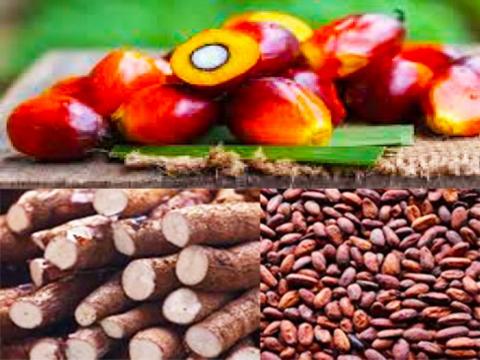By Hajaratu Kalokoh
The West Africa Competitiveness Programme (WACOMP) is a joint initiative between the Economic Community of West Africa States (ECOWAS) and the European Union, meant to facilitate economic growth among ECOWAS member states.
Funded by the EU under the 11th European Development Fund (EDF), the programme has an overall objective to reinforce the competitiveness of West Africa and to propel integration of ECOWAS countries in regional and international trading systems, including the newly established African Continental Free Trade Area (AfCFTA).
In Sierra Leone, WACOMP is implemented by the United Nations Industrial Development Organization (UNIDO) in partnership with International Trade Center (ITC). The WACOMP Sierra Leone project was launched on the 19th March 2019 and focuses on three selected processes which include development of Quality Infrastructure services, value chain improvement for Cocoa, Cassava and Palm oil as well as enabling business policies.
Over the years, Sierra Leonean economy has been heavily dependent on the mining sector which also has a major negative implication as the country is already vulnerable to climate change and other environmental adversities like flooding and mudslide. As a result, there have been growing efforts for diversification and strong emphasis on developing the agricultural sector, which will not only help diversify the economy but also help to address issues of the above adversities. Moreover, it will have positive effects on food sufficiency and increase job opportunities in Sierra Leone. The country has always been agriculture-oriented with over 61% of the rural population engaged in subsistence farming.
In 2017, contribution of agriculture to the country’s GDP was approximately 60%. However, farmers, especially micro, small and medium enterprises (MSMEs), are constrained by several factors which hinder their ability to provide competitive farm products.
The selected value chains of cocoa, cassava and palm oil have huge potential but the final products often do not meet the prerequisite standards of targets markets in terms of key indicators such as quality, heath, safety, environmental, and consumer protection combined. This is combined with inadequate knowledge of how foreign markets operate.
The WACOMP project has been working on several fronts since its inception to support Sierra Leone in addressing the urgent needs to meet competitiveness through various engagements, and technical support to the Ministry of Trade and Industry, Ministry of Agriculture and Forestry, Sierra Leone Standard Bureau (SLSB) and public universities. An important goal of the project is to establish Culture of Quality in the country.
Therefore, UNIDO has been working closely with public institutions across the country to conduct a number of awareness and capacity building trainings on ISO 9001 (from ISO 9000 family of standards for quality management) with staff of the SLSB, ministries, departments and agencies as well as private sector. Njala University and the University of Sierra Leone were also part of these trainings and UNIDO support to academia will continue through introduction of short courses in the areas of quality, food safety and management systems.
At SLSB, plans are in progress for establishing a management system certification body for the first time in the country and for international accreditation of food laboratories. In the value chains, analysis for the three value chains has been completed and some of the initial training has been conducted with cassava producers.
In the upcoming period, UNIDO aims to keep the momentum in the project implementation and embark on a number of new activities under the WACOMP framework.
Copyright © 2020 Politico Online








